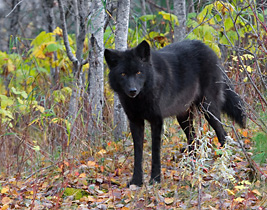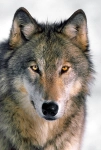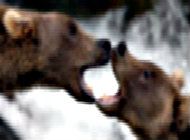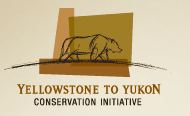“7 lions spotted along the road in the Maasai Mara National Park in Kenya.”
Big cats are losing ground in Africa. Lion numbers have plummeted to just 25,000 animals in the wild, from a high of 450,000 lions thirty years ago. Poaching, habitat loss and conflicts with humans have decimated not only lions but the entire range of big cats.
Lions in the Maasai Mara National Reserve, in south-western Kenya, are in conflict with livestock owners. When lions kill cattle the pastoralists have retaliated by killing lions, resulting in more downward pressure on the already beleaguered lion population.
Human encroachment around the reserve has contributed to huge losses of hoofed animals the big cats prey on. Hence the cats may turn to cattle.
“A study funded by the World Wildlife Fund for Nature (WWF) and conducted by ILRI between 1989 and 2003 monitored hoofed species in the Maasai Mara on a monthly basis, and found that that losses were as high as 95 percent for giraffes, 80 percent for warthogs, 76 percent for hartebeest, and 67 percent for impala.
The study blames the loss of animals on increased human settlement in and around the reserve. The article claims, “The study provides the most detailed evidence to date on the declines in the ungulate (hoofed animals) populations in The Mara and how this phenomenon is linked to the rapid expansion of human populations near the boundaries of the reserve.”
But National Geographic has stepped in to help:
Big Cats Initiative Grant
Grantee: Anne Kent Taylor
Project: Construction of predator proof livestock enclosures in prime big cat habitats in Kenya’s Maasai Mara region
Geographical Area Served: Africa\Kenya\Maasai Mara National Reserve
Field Work: 7/14/2010 – 7/11/2011Project Description:
Big cat populations in East Africa are crashing due to retaliatory killings by pastoralists. In the Maasai Mara, the problem threatens one of Africa’s most famous and important lion populations as pastoralists are increasingly intolerant of livestock predation. This project expands an existing successful project in the Mara that has effectively reduced human/lion conflict by preventing predation through securing livestock enclosures.
Maasai elder building his boma (photo by Mark Goss)
From Anne Kent Taylor (grantee):
“For those who are unfamiliar with this project, we fortify existing Maasai livestock enclosures (bomas) with chain-link to prevent predation, which has been 100 percent successful to date.”
There are now about 200 fenced enclosures protecting the Maasai livestock, with more to come. It’s amazing what people can do when they work together. The fencing project has been a giant success with no reports of lions killing even a single cow protected by the enclosures.
Yet in America many ranchers are reluctant to perform even minimal pro-active animal husbandry. They would rather blame wolves and other predators, calling Wildlife (Dis)Services demanding wolves be removed, as if somehow they own them. But on the other side of the world, in Kenya, something entirely different is going on. Kenya values its wildlife and is finding ways to resolve conflicts and reduce poaching. Kenya is setting an example for the world. Ecotourism and the dollars it brings to Kenya’s economy, is a driving force in that country. Literally, the Kenyans have realized their animals are worth more alive than dead and have adopted strong measures to protect them. Poachers can be shot and killed. They take it that seriously.
I salute National Geographic for their efforts to save “big cats” and for finding real solutions to help lions in the Maasai Mara.
Please visit “Cause An Uproar”and do whatever you can for these vital apex predators. Can you imagine a world without the “Big Cats”?
=======
Cause An Uproar
http://animals.nationalgeographic.com/animals/big-cats/cause-an-uproar/
=======
Kenya Fencing Project Stops Lion Attacks on Livestock
Continuing her blogging from the field, in the Maasai Mara in Kenya, National Geographic Big Cats Initiative grantee Anne Kent Taylor reports that to date some two hundred livestock enclosures have been fenced against predators–and thus far there has not been a single report of a protected animal taken by a big cat.
“This is so exciting for me to report, as the lions are now so much safer from revenge killings and the livestock owners are not suffering from their terrible losses to predation, which are financially and emotionally devastating,” she writes.
=======
Apathy, Cowardice, and Ignorance are the Deadliest Weapons of All
Edwin Wollert / Wolf Song of Alaska / Education Coordinator
http://www.wolfsongalaska.org/wolves_human_apathy.htm
Photos Big Cats: Courtesy Wikimedia Commons
Posted in: Biodiversity
Tags: Maasai Mara National Reserve, poaching, Human big-cat conflicts, National Geographic Big Cats Initiative, Kenya fencing project, Saving the Big Cats, Kenya, pro-active animal husbandry










 Boulder White Clouds Council
Boulder White Clouds Council Exposing The Big Game
Exposing The Big Game Footloose Montana
Footloose Montana Friends of the Clearwater
Friends of the Clearwater Lockwood Animal Rescue Center
Lockwood Animal Rescue Center Louise du Toit
Louise du Toit LUPUSLAETUS
LUPUSLAETUS Mercy For Animals
Mercy For Animals Northern Idaho Wolf Alliance (NIWA)
Northern Idaho Wolf Alliance (NIWA) Predator Friendly®- Because Wildlife Matters
Predator Friendly®- Because Wildlife Matters Project Coyote
Project Coyote Project: Wolf
Project: Wolf The Nature Conservancy
The Nature Conservancy The Ravensong Group
The Ravensong Group WildEarth Guardians
WildEarth Guardians Wisconsin Wildlife Ethic-Vote Our Wildlife
Wisconsin Wildlife Ethic-Vote Our Wildlife Wolf And Wildlife Studies: Jay Mallonee (Independent Wolf Biologist)
Wolf And Wildlife Studies: Jay Mallonee (Independent Wolf Biologist) Wolf Song of Alaska
Wolf Song of Alaska Wolves in english ! Les loups en anglais !
Wolves in english ! Les loups en anglais ! WWP's Gray Wolf Page
WWP's Gray Wolf Page Yellowstone To Yukon Conservation Initiative
Yellowstone To Yukon Conservation Initiative
Why, shut my mouth; what a miraculous, Earth-shattering phenomena, that 100% success can be acheived when you rock it low-tech, old school and take some non-lethal personal responsibility and initiative.
Stunning, ain’t it??!
LikeLike
I love seeing projects like this. It’s a win-win result for underprivileged farmers, for the lions, and for the rest of us who want to see a healthy lion population.
LikeLike
It puts many of the ranchers here to shame.
Kenya values their predators and wildlife. Such a simple solution, just a little chain link and lions are saved.
N.
LikeLike
Nabeki, Kenya also stopped sport hunting. Sport hunting is one of the many reasons why lions are doing bad and their numbers certainly show this. A trophy hunter won’t tell you this truth. They rather make up reasons to justify what they do.
LikeLike
Kenya is setting the example Jon. If only we would stop trophy hunting. What a better place this country would be. The suffering caused by this “sport” is unimaginable.
N.
LikeLike
Kudos to Kenya!
Now why can’t American ranchers be pro-active in protecting their livestock like the Kenyan ranchers are? Why can’t America treat wildlife with respect like African nations do? And why are Americans so obsessed with killing wildlife?!
I could never imagine a world without big cats; they are absolutely gorgeous! Not to mention they are vital apex predators. Yesterday I gave a speech on why big cats should be saved (was originally going to do it on wolf-hunting, but it had to be based off of a TED-Talk, and they had none on wolves). My classmates told me that I did really good with the speech; I hope that it convinced them to help save big cats!
LikeLike